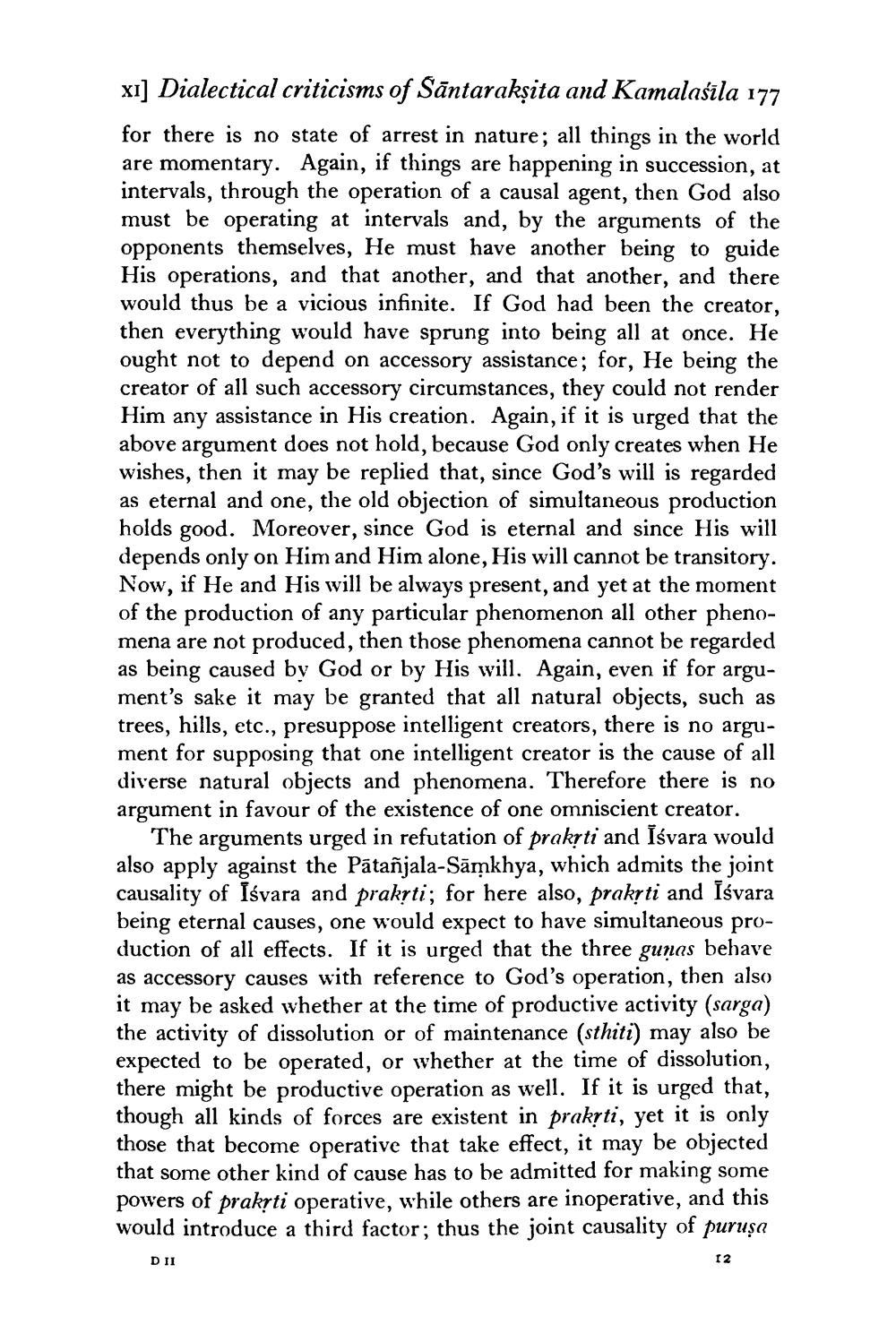________________
XI] Dialectical criticisms of Santarakṣita and Kamalasila 177
for there is no state of arrest in nature; all things in the world are momentary. Again, if things are happening in succession, at intervals, through the operation of a causal agent, then God also must be operating at intervals and, by the arguments of the opponents themselves, He must have another being to guide His operations, and that another, and that another, and there would thus be a vicious infinite. If God had been the creator, then everything would have sprung into being all at once. He ought not to depend on accessory assistance; for, He being the creator of all such accessory circumstances, they could not render Him any assistance in His creation. Again, if it is urged that the above argument does not hold, because God only creates when He wishes, then it may be replied that, since God's will is regarded as eternal and one, the old objection of simultaneous production holds good. Moreover, since God is eternal and since His will depends only on Him and Him alone, His will cannot be transitory. Now, if He and His will be always present, and yet at the moment of the production of any particular phenomenon all other phenomena are not produced, then those phenomena cannot be regarded as being caused by God or by His will. Again, even if for argument's sake it may be granted that all natural objects, such as trees, hills, etc., presuppose intelligent creators, there is no argument for supposing that one intelligent creator is the cause of all diverse natural objects and phenomena. Therefore there is no argument in favour of the existence of one omniscient creator.
The arguments urged in refutation of prakṛti and Isvara would also apply against the Pātañjala-Samkhya, which admits the joint causality of Isvara and prakṛti; for here also, prakṛti and Iśvara being eternal causes, one would expect to have simultaneous production of all effects. If it is urged that the three gunas behave as accessory causes with reference to God's operation, then also it may be asked whether at the time of productive activity (sarga) the activity of dissolution or of maintenance (sthiti) may also be expected to be operated, or whether at the time of dissolution, there might be productive operation as well. If it is urged that, though all kinds of forces are existent in prakṛti, yet it is only those that become operative that take effect, it may be objected that some other kind of cause has to be admitted for making some powers of prakṛti operative, while others are inoperative, and this would introduce a third factor; thus the joint causality of puruşa
D II
12




